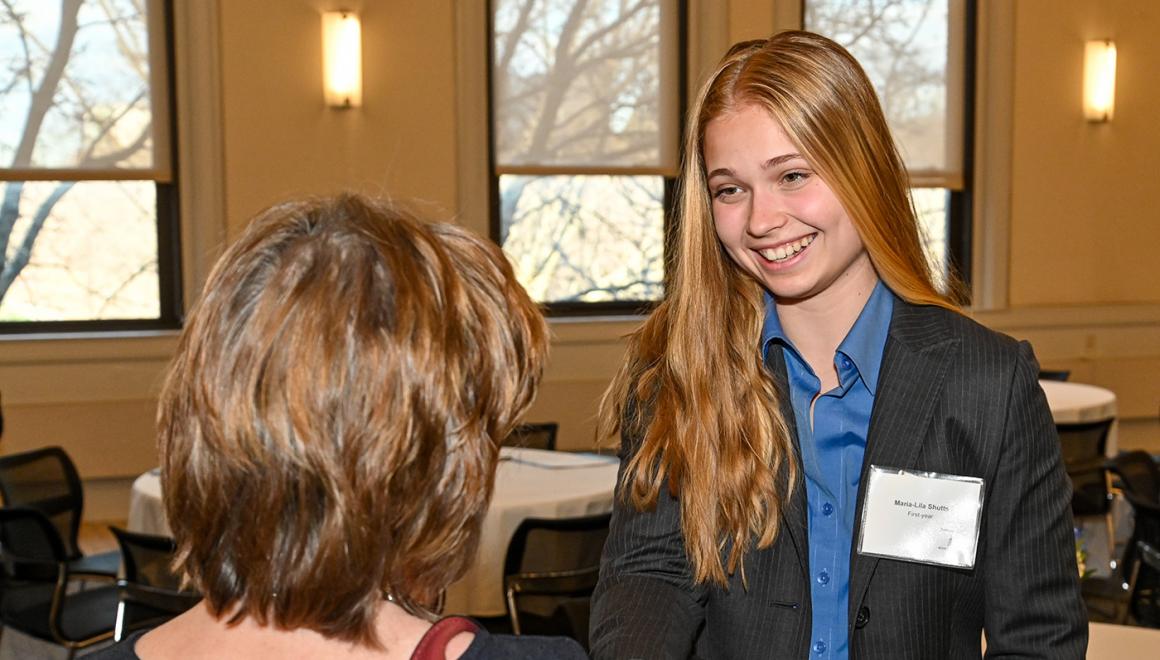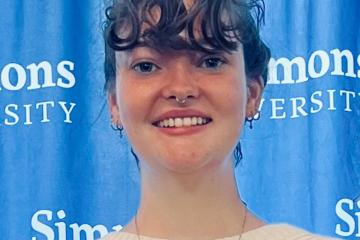Economics

Supportive alumnae/i networking community, diverse career paths, and the power to influence
Earn a bachelor's degree in Economics at Simmons and build career-essential skills in critical thinking, analysis, problem-solving, research, and writing. In our program, you’ll learn how the economy shapes everyday life — and how you can make a difference in your area of passion.
Our program ensures you’ll graduate ready to succeed in business, government, or nonprofit work. We have a strong record of student success. Year after year, 100% of our graduates secure jobs or pursue graduate study within a year of graduation.
Join our supportive community of faculty, alumnae/i, and students, a community designed to help you discover your talents and achieve your goals. Our faculty are committed to your academic and professional growth, helping you gain the confidence and skills to thrive in the workplace.
Why pursue an Economics degree at Simmons?
The Simmons Economics degree is a passport to diverse career paths and graduate degrees, because it combines four key elements:
- A rigorous curriculum that prepares you for a diverse spectrum of professional paths and graduate degrees. Courses help you better understand the world, and empower you to make the difference you want to make.
- ECONnect, a networking and career preparation program, to connect you to supportive alumnae/i through workshops and an annual dinner.
- Economics Liaison, a student organization that offers leadership development and fun out-of-class learning.
- Supportive Faculty, who offer office-hour instruction, academic advising, and assistance in leveraging ECONnect to find internships and first jobs. Faculty provide mentorship for graduates making professional transitions and applying to graduate programs.
Our graduates are CEOs, presidents, VPs, directors, and consultants. They serve in major corporations, including CVS, Liberty Mutual, Goldman Sachs, Fidelity, State Street, Morgan Stanley, and Takeda Pharmaceuticals. Our graduates are also leaders in nonprofit organizations, including United Nations Foundation, Discovery Museum, International Institute of New England, and the Commerce Department of Nantucket.
An Economics degree helps you secure roles in law, government, banking, financial advising, insurance, and compliance. It also prepares you for business consulting, career coaching, healthcare, education, marketing, and TV news production.
Our program is excellent preparation for graduate school. Many pursue advanced study in economics, law, public policy, public health, urban planning, international relations, management, finance, and social work. Our alumnae/i have gone on to earn the JD, PhD, MA, MS, MBA, and MFA.
Economics is about empowerment
Economics is not everything, but it is everywhere. That is, while it’s a mistake to reduce social complexity to its economic dimensions, in most issues facing us — from medical advancement to social equity — the economic elements are important to recognize and analyze.
As a framework for social analysis, the field of economics complements other social sciences and humanities disciplines. You will improve your understanding of issues like:
- Equity in healthcare, housing, and education
- LGBTQ+ rights and gender equity
- Climate change and environmental protection
- Tariff policy and global peace
- How Big Tech and AI will impact job growth
- Economic impacts of immigration policy
Along the way, you will learn about institutions shaping current events. These include the Federal Reserve, International Monetary Fund, Environmental Protection Agency, Occupational Safety and Health Administration, and the Bureau of Labor Statistics.
As a recent graduate noted, the Simmons Economics program emphasizes intuitive reasoning and logical understanding. We don’t test the ability to memorize formulas. Faculty teach analytical methods and economic arguments in ways to help you grasp the underlying logic. Building analytical skills and intellectual self-confidence are important ways this program will empower you for many years to come.











